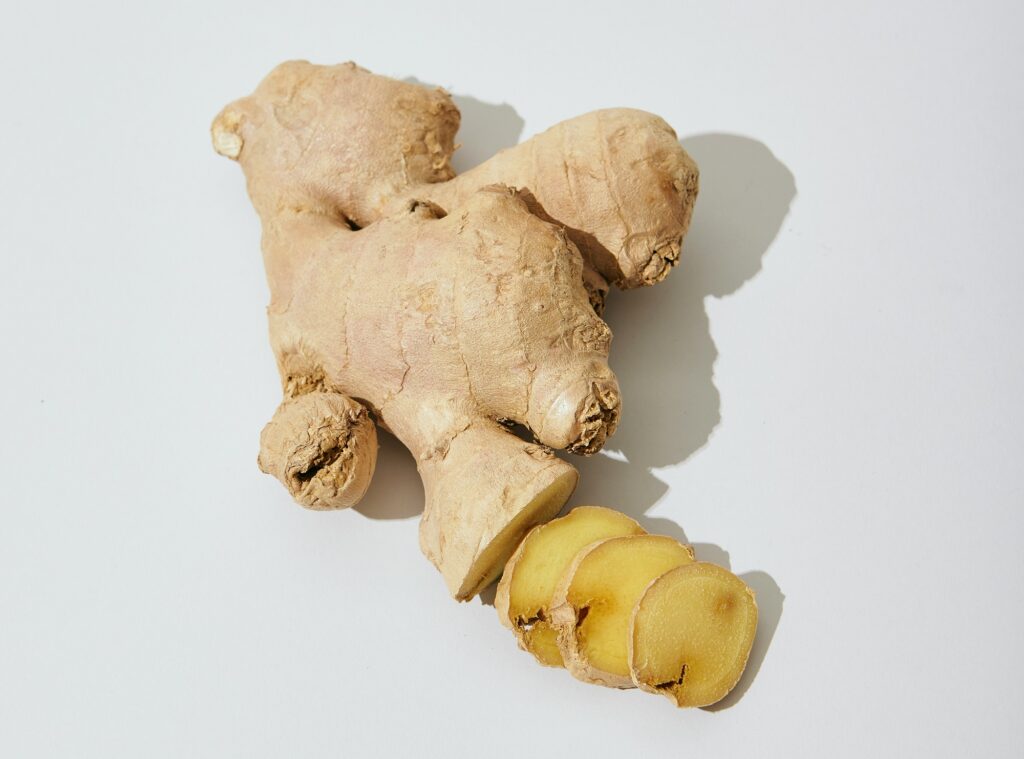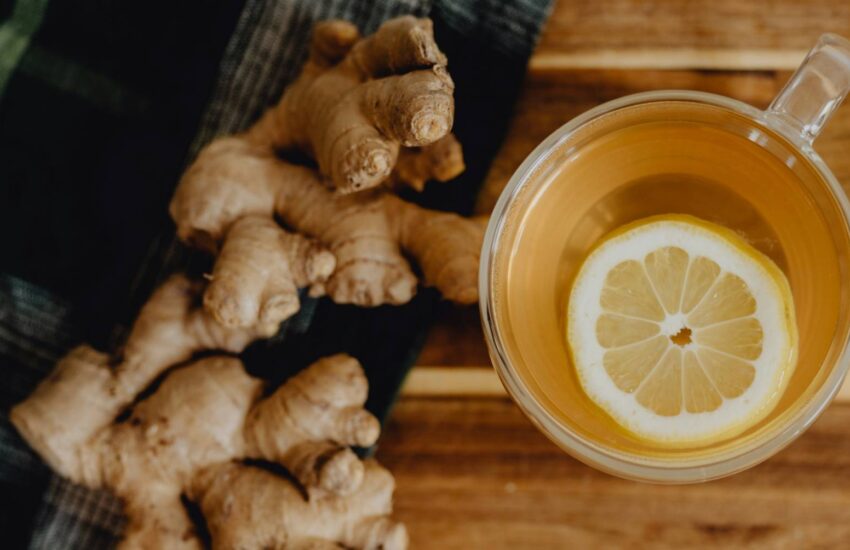Ginger tea, made from the root of the ginger plant, is a popular beverage that offers numerous health benefits, particularly during the cold winter months. As winter brings colder temperatures, shorter days, and a variety of seasonal ailments, ginger tea can serve as a powerful natural remedy. Packed with bioactive compounds like gingerol, it promotes wellness and supports immune function, digestion, and overall well-being. This article explores the multifaceted health benefits of ginger tea during winter. Mohit Tandon from Houston suggested some of the Health Benefits of Ginger Tea in Winter.
1. Boosting the Immune System
One of the most important benefits of ginger tea is its ability to enhance the immune system. During winter, when viral infections such as the flu and common cold are prevalent, maintaining a strong immune system becomes crucial. Ginger is rich in antioxidants and compounds that possess anti-inflammatory and antimicrobial properties. Consuming ginger tea regularly can help the body combat harmful pathogens, reduce inflammation, and protect against infections.
Anti-inflammatory Properties
Ginger contains bioactive compounds like gingerol, which have potent anti-inflammatory effects. Chronic inflammation weakens the immune system, making the body more susceptible to illness. By reducing inflammation, ginger helps the immune system function more effectively, which is especially important during the winter months when people are more likely to fall ill.
Antioxidant Defense
The antioxidants in ginger help neutralize free radicals, which are unstable molecules that can damage cells and weaken the immune system. Antioxidants help boost the body’s defenses, enabling it to fight off viruses and bacteria more effectively. – Mohit Tandon Houston
2. Relieving Cold and Flu Symptoms
Ginger tea can be a comforting and effective remedy for easing cold and flu symptoms. The warmth of the tea itself can help soothe a sore throat and provide relief from congestion. Additionally, ginger’s ability to stimulate circulation and induce sweating can help break a fever, providing much-needed relief when you’re feeling under the weather.
Decongestant Effects
Ginger tea can act as a natural decongestant, helping to clear blocked nasal passages. The compounds in ginger help relax the muscles around the airways, making it easier to breathe. This is particularly beneficial for individuals suffering from cold-induced nasal congestion.
Throat Soothing
Ginger has a natural soothing effect on the throat, making it an excellent choice for alleviating the discomfort caused by colds or sore throats. Ginger tea’s warmth combined with its anti-inflammatory properties can help reduce irritation and promote healing.
3. Improving Digestion and Relieving Nausea
During winter, people often indulge in heavier, richer foods, which can lead to digestive discomfort. Ginger tea can help soothe the digestive system, promote healthy digestion, and prevent problems like bloating and indigestion. Ginger contains compounds that stimulate the production of digestive enzymes and bile, enhancing the digestive process.
Relieving Nausea
Ginger has long been used as a natural remedy for nausea and vomiting. Whether caused by motion sickness, indigestion, or even a winter illness, ginger tea can help alleviate these symptoms. Consuming ginger tea before meals can prevent nausea and settle the stomach.
Enhancing Digestion
Drinking ginger tea helps stimulate the production of digestive juices, promoting better digestion of food. It also accelerates the emptying of the stomach, which can help prevent issues such as bloating and indigestion, particularly after consuming heavy winter meals.
4. Promoting Circulation and Reducing Cold Extremities
During winter, reduced circulation due to cold temperatures can result in cold hands, feet, and overall body discomfort. Ginger tea can improve circulation, which can help keep you warm and prevent numbness in the extremities. Ginger stimulates blood flow, promoting warmth and helping you maintain a comfortable body temperature during chilly days.
Stimulating Blood Flow
Ginger contains compounds that stimulate blood flow and improve circulation, which can help reduce the feeling of coldness in the hands and feet. This circulation boost helps the body regulate its temperature more effectively in winter.
Supporting Heart Health
Ginger also supports heart health by helping to lower cholesterol levels and improve overall cardiovascular function. By promoting better circulation and reducing the risk of cardiovascular diseases, ginger tea can contribute to better overall health during the winter season.
5. Enhancing Respiratory Health
Ginger tea is a popular choice for those seeking to maintain optimal respiratory health during the winter months. Cold air can irritate the lungs, exacerbate respiratory conditions, and lead to increased mucus production. Ginger’s expectorant properties help clear mucus from the airways, making it easier to breathe.
Natural Bronchodilator
Ginger acts as a natural bronchodilator, meaning it helps to open up the airways and improve breathing. This can be beneficial for individuals who experience difficulty breathing due to cold weather or conditions like asthma or bronchitis.
Alleviating Cough and Chest Congestion
Ginger tea can help reduce the severity of a cough and alleviate chest congestion. It can break down mucus, making it easier to expel, and soothe the irritation in the throat and chest caused by persistent coughing.
6. Relieving Stress and Enhancing Mood
Winter can often bring about feelings of seasonal depression or low energy due to reduced daylight hours and cold temperatures. Ginger tea can play a role in lifting the mood and reducing stress, thanks to its calming and uplifting properties.
Stress Reduction
Ginger tea has a calming effect on the body, helping to reduce cortisol levels—the hormone responsible for stress. This can make ginger tea an excellent natural remedy for people feeling the weight of winter stress or seasonal anxiety.
Boosting Serotonin Levels
Ginger has been linked to the production of serotonin, the “feel-good” hormone. Drinking ginger tea can help elevate mood and reduce feelings of depression or irritability during the winter months when people may be more prone to these emotions.

7. Weight Management and Metabolism Boost
Winter can lead to sedentary behavior and overeating, which may result in weight gain. Ginger tea can aid in weight management by promoting thermogenesis (the process by which the body produces heat) and boosting metabolism. This makes it easier for the body to burn calories, even when inactive.
Thermogenesis
Ginger has thermogenic properties, meaning it can increase the body’s internal temperature and promote the burning of fat. This can be particularly helpful during the colder months when people tend to gain weight due to reduced physical activity and increased calorie consumption.
Appetite Suppression
Drinking ginger tea may also help curb appetite, preventing overeating and helping with portion control. By controlling hunger and promoting satiety, ginger tea can be an effective tool in managing weight during winter.
8. Skin Health and Hydration
Cold, dry winter air can lead to dry, flaky skin. Ginger tea can help improve skin health by promoting circulation, detoxification, and hydration.
Improving Skin Tone
Ginger’s antioxidant properties help combat oxidative stress, which can contribute to premature aging and skin damage. Drinking ginger tea regularly can enhance the skin’s natural glow, helping you maintain healthy, youthful-looking skin throughout the winter months.
Hydrating the Skin
The warmth and hydration of ginger tea help maintain skin moisture levels, preventing dryness and cracking. Ginger’s anti-inflammatory properties also help reduce skin irritation caused by the harsh winter weather.
9. Detoxification and Liver Health
Ginger tea is a natural detoxifier, helping to cleanse the body of toxins and support liver function. During winter, people tend to consume richer foods and beverages, and ginger can aid in detoxifying the system and keeping the liver healthy.
Promoting Detoxification
Ginger helps increase sweating and urination, which aids in the removal of toxins from the body. Regular consumption of ginger tea can help clear out accumulated waste and reduce the burden on the liver and kidneys.
Supporting Liver Health
Ginger has been shown to protect the liver from damage caused by toxins and free radicals. By drinking ginger tea, individuals can help support the liver’s detoxification processes, which are especially important after the indulgences of holiday meals. – Mohit Tandon Houston
Conclusion
Ginger tea offers a wide array of health benefits, making it an excellent addition to your winter wellness routine. Whether it’s boosting the immune system, improving digestion, or promoting better circulation, ginger tea has something to offer for everyone. Its natural warmth and comforting properties make it an ideal beverage for combating the winter chill, while its potent medicinal qualities help protect against common seasonal ailments. By incorporating ginger tea into your daily routine, you can support your overall health and enjoy the winter months feeling your best.
